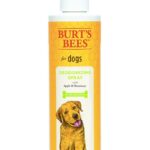Are Cosmos Poisonous To Dogs
Are Cosmos Poisonous to Dogs: What You Need to Know
If you’re a dog owner, you know how much your furry friend means to you. You want to keep them happy and healthy at all times. That’s why it’s important to know what plants and flowers are safe for your pet, and which ones can be harmful or even fatal.
Cosmos is a popular flowering plant that blooms in the summer and fall. They come in a variety of colors, from pink and purple to white and yellow. But are cosmos poisonous to dogs? The answer is yes and no.
First, let’s talk about what makes a plant poisonous to dogs. Some plants contain toxins that can cause a range of symptoms in dogs, from mild stomach upset to seizures, coma, and death. These toxins can be found in the leaves, stems, flowers, or roots of the plant.
Now, when it comes to cosmos, the good news is that they are not considered highly toxic to dogs. In fact, the American Society for the Prevention of Cruelty to Animals (ASPCA) lists cosmos as non-toxic to dogs. This means that if your dog eats a few petals or leaves of a cosmos plant, it’s unlikely to cause any serious harm.
However, there are some things to keep in mind. First, if your dog eats a large amount of cosmos or any other plant, they may experience gastrointestinal upset such as vomiting or diarrhea. This is because dogs have different digestive systems than humans and may not be able to tolerate certain foods or plants.
Secondly, while cosmos itself is not toxic to dogs, it’s important to consider how the plant has been treated. If you use pesticides or herbicides on your cosmos plants, those chemicals can be harmful to your pet if ingested. Always read labels carefully before using any chemicals on your plants and make sure they are safe for pets.
In addition, if you have a puppy or a dog that likes to chew on everything, it’s best to keep them away from your cosmos plants altogether. Even if the plant itself is not toxic, chewing on any plant can cause gastrointestinal upset or even an obstruction in the digestive tract.
So, while cosmos is generally safe for dogs, it’s important to use caution and common sense when it comes to your pet’s interactions with plants. Here are some tips to keep in mind:
1. Keep your dog away from plants that have been treated with chemicals.
2. Monitor your dog’s interactions with plants and remove any that they seem particularly interested in.
3. If you notice any signs of gastrointestinal upset after your dog has interacted with a plant, contact your veterinarian right away.
4. Consider planting other pet-friendly flowers and plants in your yard, such as marigolds, sunflowers, or snapdragons.
In conclusion, while cosmos is not highly toxic to dogs, it’s still important to be mindful of their interactions with plants. By taking a few precautions and being aware of potential risks, you can help keep your furry friend safe and healthy all year round.



